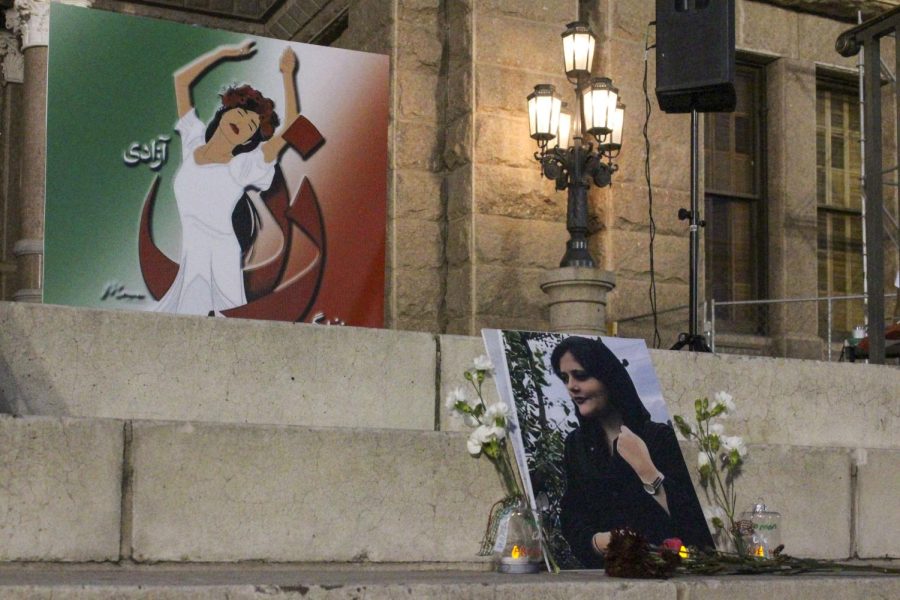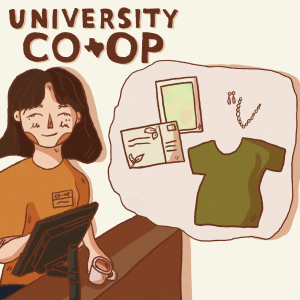‘My people want to live,’ protests continue at Texas Capitol following death of Mahsa Amini
October 18, 2022
Aryana Rostami said she and her family left Iran due to the political regime when she was 16.
Six years later, Rostami, now a Middle Eastern studies, Middle Eastern languages and culture, international relations and global studies and history senior, stood before a crowd at the Capitol demanding action for the people of Iran.
“I was 9-years-old when they murdered Neda Agha-Soltan in the streets of Iran,” Rostami said during the protest, referring to a woman whom the Iranian militia fatally shot during 2009 election protests. “Now, I am 21-years-old, and they have murdered Mahsa Amini.”
International protests erupted after Amini, a 22-year-old Iranian woman, died under mysterious circumstances in mid-September while in police custody. According to Al-Monitor, Iranian Guidance Patrol originally took Amini into custody over hijab regulations. Her brother, Kiarash Amini, suspected foul play when the police released her while she was in a coma.
Hadi Farasat, an Austin resident and UT alumnus who left Iran in the 1970s, has organized three protests at the state Capitol so far.
Farasat said he hopes this will prompt action by world governments and humanitarian groups, such as The American Red Cross, to help Iranian citizens.
“We are trying to get people to help us be the voice of people within Iran,” Farasat said. “They’re being killed and imprisoned, left, right and center, every day on the streets.”
Farasat said although many Iranian residents don’t have simple freedoms, women are the most marginalized group: Iran ranks as the seventh worst nation in terms of gender disparity according to the World Economic Forum’s 2021 Global Gender Gap Report.
“My people are tired of continuous dictatorship,” Parmida Moosadoost, a pharmacy doctoral candidate who also spoke at the protest, said. “My people are tired of injustice, of living a pre-written life, of all the unfair laws. My people want to be independent. My people want to be free. My people want to live.”
Rostami said the morality police, officially known as the Guidance Patrol, police women’s activities in the Islamic state. She said they enforce laws ranging from dress code to whom women are allowed to walk with.
“There’s a morality police who will arrest you for wearing a hijab a certain way (or) for walking with a male that is not your family member. … You will be questioned and your family will be contacted,” Rostami said.
Rostami said while she respects the choice of wearing a headscarf, she does not respect the institution that outright requires it in a number of Middle Eastern countries.
Rostami said headscarves must be worn for girls in Iran to attend school, and school administrators will often designate a hall monitor with the specific job of enforcing these regulations.
“This indoctrination starts in elementary school,” Rostami said. “Despite the fact that my school was all women, we were still forced to hold on to that scarf five to six hours a day every day starting from age seven.”
Rostami said she hopes the struggle of the Iranian people will remain in the public eye until the regime is overthrown.
“There (are) women in Iran, in the streets of Tehran that are risking their lives,” Rostami said. “They are at a risk of being arrested, they’re at risk of being detained and they’re at risk of getting killed. We’re all humans — a life being lost in Iran is a life being lost for humanity.”















